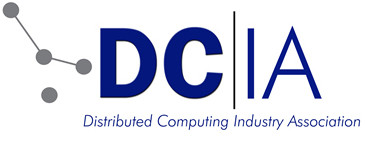In This Issue
- Ideas for New Czar
- Fog New Revolution
- Telefonica Modernizes
- Report from the CEO
- Surveillance Threat
- 49% Cyber Victims
- OMB Breach Guidance
- Congress Protections
- Lawmakers’ Agenda
- Grid Imminent Danger
- DHS & Cybersecurity
- NIST New Framework
- Data Next Hot Button
- FCC Impassioned Plea
- Moore’s Law No Prob
- Einstein@Home Score
- Coming DCIA Events
Ideas for America’s New Cyber Czar
Excerpted from The Hill Report by Brett Bruen
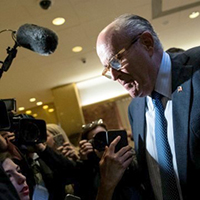 Rudy Giuliani faces what is perhaps the greatest challenge of our generation. How can our government effectively face down myriad and rapidly morphing cybersecurity threats?
Rudy Giuliani faces what is perhaps the greatest challenge of our generation. How can our government effectively face down myriad and rapidly morphing cybersecurity threats?
President-elect Trump tapped the former New York mayor to tackle an issue that will likely define his presidency and our country’s prospects for the future.
The role laid out in the Transition team’s release is both vast and vague.
One reading of it would have Giuliani convening outside experts every few months to pitch new responses to emerging cyber issues.
Yet, the group has the potential to achieve more than informal ideation. They may actually create a comparative advantage for America to use against these asymmetric threats.
The government is good at using tech companies for superficial solutions.
Officials love to visit Silicon Valley, listen to jean-clad geeks, snap some photos and post them on their social media feeds… Read More
Fog Computing Is New Revolution
Excerpted from DreamCommerce Report
 In simple words, devices connected with the cloud send requests for every data, communication or a measurement to the cloud and wait for the information to return.
In simple words, devices connected with the cloud send requests for every data, communication or a measurement to the cloud and wait for the information to return.
Fog computing is an idea of decentralizing the process, so each device would carry some amounts of crucial information so that there is no need to consult the cloud for details.
Computing power would be carried within the device, located near the end-user.
Instead of having storage in the cloud, communication via internet backbone and management controlled by network gateways, fog devices would have all the functional tools and connections within them. Resources, computing power and control would be closer to the device and the user.
The term “fog computing” is an idea taken from Cisco company and their development of OpenFog Consortium funded along with Intel, Microsoft, Princeton University, Dell, and ARM Holdings.
The Consortium works on bringing data and management to devices, without transferring it to the cloud… Read More
Ericsson & Cisco Modernize Telefonica Network
Excerpted from Nasdaq Globe Newswire Report
 Ericsson and Cisco will provide Telefonica Guatemala with a new Internet Protocol (IP) network backbone, based on Cisco’s aggregation services routers and Ericsson’s integration services.
Ericsson and Cisco will provide Telefonica Guatemala with a new Internet Protocol (IP) network backbone, based on Cisco’s aggregation services routers and Ericsson’s integration services.
Telefonica’s LTE subscribers will benefit from the network modernization with increased mobile broadband speeds and better application coverage throughout the country.
Daniel Delisante, Regional CTO, Telefonica Central America, says: “We selected Ericsson based on our longstanding relationship, and trust that the new Ericsson and Cisco partnership will bring value to Telefonica in Central America.”
“As the demand for high-speed broadband and application coverage is continually increasing, we are happy to offer our subscribers a modern, IP-based network throughout Guatemala.”
The solution, which includes Ericsson’s implementation and integration services, as well as Cisco routers (ASR 9010 and ASR 1001), will expand Telefonica Guatemala’s current network backbone.
It will support new capacity and features, including Ethernet services, VPNs, and IPv6… Read More
Report from DCIA CEO Marty Lafferty
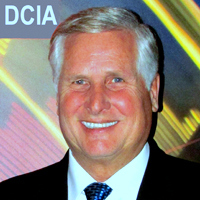 The DCIA is joining with fellow trade organizations, public interest advocates, and technology companies, to voice our support for the Email Privacy Act (HR 387), and we encourage you to do so.
The DCIA is joining with fellow trade organizations, public interest advocates, and technology companies, to voice our support for the Email Privacy Act (HR 387), and we encourage you to do so.
This measure updates the Electronic Communications Privacy Act (ECPA), the law that sets standards for government access to private internet communications, to reflect internet users’ reasonable expectations of privacy with respect to emails, texts, notes, photos, and other sensitive information stored in the cloud.
The bill represents true bipartisan, commonsense reform on privacy and was endorsed unanimously by the House of Representatives in the 114th Congress.
The bill would end ECPA’s arbitrary 180-day rule, which permits email communications to be obtained without a warrant after 180 days.
The Act would also reject the Department of Justice (DoJ) interpretation of ECPA, that the act of opening an email removes it from warrant protection.
These reforms would ratify the Sixth Circuit’s decision in US v. Warshak, which held that email content is protected by the Fourth Amendment and that law enforcement access requires a probable cause warrant.
Moreover, the changes reflect current practices: DoJ and FBI policies already require law enforcement officials seeking content to obtain a search warrant, and many service providers will not relinquish their users’ content without one. Share wisely, and take care.
Mass Surveillance Top Cybersecurity Threat
Excerpted from Benzinga Report by Brett Hershman
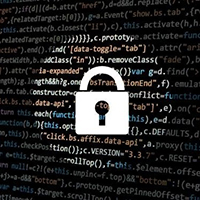
As the Russian hacking scandal of the US election continues to gain traction in Washington, more questions are being raised about the future of cybersecurity and how businesses and citizens can ensure their information stays out of malicious hands.
According to a new survey, the most likely cybersecurity threat to happen in the near future is massive surveillance conducted by a domestic or foreign government.
Fifty ethical hackers were surveyed by MonsterCloud, a managed IT service provider, to determine what they believe to be the most imminent, severe threats to cybersecurity in the coming year.
According to the findings, a mass surveillance threat is more likely to occur than a widespread ransomware attack on private citizens.
However, the latter was still a high concern for ethical hackers. Ransomware is also a concern held by other experts for 2017, particularly within cloud infrastructure.
“A complete overhaul of our nation’s info-security policies will help,” said ethical hacker and CEO of Red Cell Infosec Dominique Davis… Read More
49% of Businesses Cyber-Attack Victims in 2016
Excerpted from TechRepublic Report by Alison DeNisco
 Nearly half of businesses report that they were the subject of a cyber-ransom campaign in 2016, according to Radware’s Global Application and Network Security Report 2016-2017.
Nearly half of businesses report that they were the subject of a cyber-ransom campaign in 2016, according to Radware’s Global Application and Network Security Report 2016-2017.
Data loss topped the list of IT professionals’ cyber-attack concerns, the report found, with 27% of tech leaders reporting this as their greatest worry.
It was followed by service outage (19%), reputation loss (16%), and customer or partner loss (9%).
Malware or bot attacks hit half of all organizations surveyed in the last year.
One reason for the pervasive attacks? The Internet of Things (IoT).
Some 55% of respondents reported that IoT ecosystems had complicated their cybersecurity detection measures, as they create more vulnerabilities.
Ransomware attacks in particular continue to increase rapidly: 41% of respondents reported that ransom was the top motivator behind the cyber-attacks they experienced in 2016… Read More
OMB Guidance for Data Breaches
Excerpted from FedScoop Report by Samantha Ehlinger
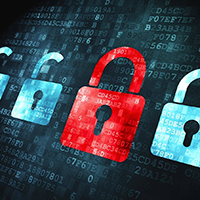 A new White House memorandum seeks to clarify how federal agencies should be preparing for and responding to a breach.
A new White House memorandum seeks to clarify how federal agencies should be preparing for and responding to a breach.
The Office of Management and Budget memo released Tuesday is replacing three outdated memos, one from 2007 and two from 2006.
It doesn’t address specific policy on information security or technical methods to control or detect incidents, but it does offer “a framework for assessing and mitigating the risk of harm to individuals potentially affected by a breach,” and guidance on whether and how to notify people and offer support services.
The policy comes after the House Oversight and Government Reform Committee reported in September that the historic data breach at the Office of Personnel Management was the result of failed leadership and consistent cybersecurity ignorance.
That report called for the OMB to develop certification requirements that include requirements for reporting breaches to a federal cybersecurity center and notifying people whose personally identifiable information might have been compromised.
The memo released this week offers guidance for reporting breaches and notification, and also outlines some requirements for contracts… Read More
Congress Steps Up Cybersecurity Protections
Excerpted from USA Today Report by Deborah Barfield Berry
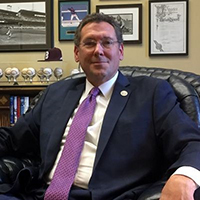 In the wake of charges that Russian hackers tried to destabilize the US election, Congress will step up efforts to protect itself from cybersecurity attacks, including better training for lawmakers and staffers, said the head of the committee that oversees operations in the House.
In the wake of charges that Russian hackers tried to destabilize the US election, Congress will step up efforts to protect itself from cybersecurity attacks, including better training for lawmakers and staffers, said the head of the committee that oversees operations in the House.
“One of the biggest threats that we have here would be the security, in particular the cybersecurity threats, that we face,” said Congressman Gregg Harper (R-MS), the new Chairman of the House Administration Committee.
“Every office, every committee, every part of Capitol Hill is subject to attack by foreign governments, by individuals, people in this county who mean us harm.”
The Director of National Intelligence released a report Friday alleging that the Russian government hacked Hillary Clinton’s campaign and other political party groups to try to influence the presidential election and help President-elect Donald Trump win.
Officials had warned earlier last year that millions of emails to House offices contained malware or viruses.
The House Administration Committee has jurisdiction over a range of agencies… Read More
Lawmakers’ Cybersecurity Agenda for Trump
Excerpted from Fox News Report by Brooke Singman

A task force of bipartisan lawmakers on Thursday released a report recommending a detailed cybersecurity agenda for the incoming Trump administration, even as the issue dominates talk on Capitol Hill.
The panel, co-chaired by House Homeland Security Chairman Michael McCaul (R-TX) and Senator Sheldon Whitehouse (D-RI), released the 34-page report in a press conference in which they outlined the top priorities for preventing foreign hacks of sensitive data.
“A silent war is waged against us in cyberspace – if we don’t shape it, it will be shaped against us,” McCaul said.
“Every person in this room is a target and the phones in your pocket are the battle space – and the enemy is winning.”
The Center for Strategic & International Studies (CSIS) sponsored the CSIS Cyber Policy Task Force, which produced the report.
A similar report was presented to then President-elect Barack Obama in 2009, and compiled by a commission also served by McCaul… Read More
US Grid’s Imminent Danger from Cyber-Attack
Excerpted from Bloomberg News Report by Ari Natter and Mark Chediak

The US Energy Department says the electricity system “faces imminent danger” from cyber-attacks, which are growing more frequent and sophisticated, but grid operators say they are already on top of the problem.
In the department’s landmark Quadrennial Energy Review, it warned that a widespread power outage caused by a cyber-attack could undermine “critical defense infrastructure” as well as much of the economy and place at risk the health and safety of millions of citizens.
The report comes amid increased concern over cybersecurity risks as U.S. intelligence agencies say Russian hacking was aimed at influencing the 2016 presidential election.
“Cyber threats to the electricity system are increasing in sophistication, magnitude, and frequency,” it said in the 494-page report.
“The current cybersecurity landscape is characterized by rapidly evolving threats and vulnerabilities, juxtaposed against the slower-moving deployment of defense measures.”
The department detailed 76 recommendations to boost energy, including increasing the collection of data about online breaches from utilities… Read More
DHS Should Have Cybersecurity Unit
Excerpted from Coumputerworld Report by Matt Hamblen
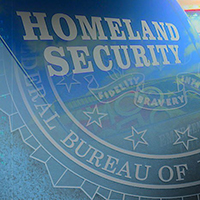 The Chairman of the US House Committee on Homeland Security said Wednesday his top priority in 2017 will be to push for creation of a cybersecurity agency within the Department of Homeland Security (DHS).
The Chairman of the US House Committee on Homeland Security said Wednesday his top priority in 2017 will be to push for creation of a cybersecurity agency within the Department of Homeland Security (DHS).
“DHS needs focus and resources, and they are doing a decent job, but could be doing a lot better with the help of Congress,” said Congressman Michael McCaul (R-TX) in comments to reporters at the National Press Club.
“It’s not a Republican or Democratic issue.”
McCaul said one vital role for the DHS in the future would be to provide cyber-assistance on national elections that are under the management of the states.
DHS Secretary Jeh Johnson on Friday called for dsignating the nation’s election mechanisms as a “critical infrastructure,” given the vital role elections play in the country,
Johnson emphasized that the designation does not mean there would be a federal takeover or intrusion into elections.
Well before Johnson’s statement was issued, election officials in several states had reached out to federal authorities… Read More
NIST Updates Cybersecurity Framework
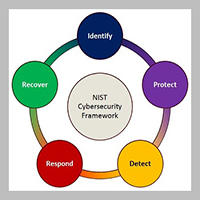
On January 10, 2017, as the Obama administration draws to a close, the National Institute of Standards and Technology (“NIST”) released a long-awaited draft version 1.1 of its ground-breaking Framework for Improving Critical Infrastructure Cybersecurity.
This draft revision builds upon the initial “version 1.0” of the cybersecurity framework, which NIST released in February, 2014, pursuant to an Executive Order issued by President Obama in February 2013 as part of his cybersecurity agenda.
The initial framework was the result of a collaborative process involving industry, government and academia, supervised by NIST.
The framework is a significant part of the federal government’s cybersecurity policy for improving the protection of critical parts of the government and industry from cyber attacks
According to NIST’s statement accompanying the release of draft version 1.1, “the updated framework aims to further develop NIST’s voluntary guidance to organizations on reducing cybersecurity risks… Read More
Data Next Tech Hot Button for Regulators
Excerpted from NY Times Report by Steve Lohr

Wealth and influence in the technology business have always been about gaining the upper hand in software or the machines that software ran on.
Now data – gathered in those immense pools of information that are at the heart of everything from artificial intelligence to online shopping recommendations – is increasingly a focus of technology competition.
And academics and some policy makers, especially in Europe, are considering whether big internet companies like Google and Facebook might use their data resources as a barrier to new entrants and innovation.
In recent years, Google, Facebook, Apple, Amazon and Microsoft have all been targets of tax evasion, privacy or antitrust investigations.
But in the coming years, who controls what data could be the next worldwide regulatory focus as governments strain to understand and sometimes rein in American tech giants.
The European Commission and the British House of Lords both issued reports last year on digital “platform” companies… Read More
Wheeler Makes Impassioned Plea for Title II
Excerpted from Multichannel News Report by John Eggerton
 FCC Chairman Tom Wheeler used his final policy speech to make an impassioned plea for retaining the FCC’s Open Internet rules and reclassification of ISPs as common carriers,” saying “”No company using the Internet is safe absent the kind of common carrier requirements America has historically expected of its networks.”
FCC Chairman Tom Wheeler used his final policy speech to make an impassioned plea for retaining the FCC’s Open Internet rules and reclassification of ISPs as common carriers,” saying “”No company using the Internet is safe absent the kind of common carrier requirements America has historically expected of its networks.”
That came at what was billed at his final public address — at the Aspen Institute in Washington, where Wheeler will be a senior fellow after he leaves the commission January 20th.
Wheeler pulled out all the stops, saying that without Open Internet order protections, ISPs could demand tribute for access, control the cloud, dim the light of the Internet of Things, and otherwise limit choice and competition.
He cited zero rating of owned content as one threat to competition — the FCC’s Wireless Bureau released a report this week citing AT&T’s DirecTV Now as an example of that.
“We have already seen how AT&T and Verizon have favored their own video services by zero-rating their product while forcing consumers to pay data charges for competitors.”
“Just take that behavior and look how it would affect other 21st century services… Read More
Moore’s Law No Barrier to Better Processing
Excerpted from Report by Arthur Cole
 If there has been one constant throughout the decades of change that has produced the data environment we have today, it’s that basic technologies continue to strive for greater performance.
If there has been one constant throughout the decades of change that has produced the data environment we have today, it’s that basic technologies continue to strive for greater performance.
Nowhere is this more evident than on chip-level architectures.
Even as the physical limitations of Moore’s Law come into play, designers are busy creating new interconnects, interfaces and software constructs to keep the bits flowing, and even coming up with new structural technologies that could very well restart the field of digital signal processing on a whole new trajectory.
Intel, of course, is at the forefront of these efforts, says NewsFactor Network’s Jef Cozza, having just released the latest in the Core i7 line, including new desktop versions of the Kaby Lake family that should help boost performance, security and graphics capabilities for enterprise desktops and laptops.
Aside from removing the need for a dedicated GPU for video conferencing and other rich media applications, the new devices double the battery life to 10 hours over existing Skylake machines, and provide a 65 percent data productivity improvement for notebooks running 4k workloads… Read More
Einstein@Home Scores Discovery
 An analysis that would have taken more than a thousand years on a single computer has found within one year more than a dozen new rapidly rotating neutron stars in data from the Fermi gamma-ray space telescope.
An analysis that would have taken more than a thousand years on a single computer has found within one year more than a dozen new rapidly rotating neutron stars in data from the Fermi gamma-ray space telescope.
With computing power donated by volunteers from all over the world an international team led by researchers at the Max Planck Institute for Gravitational Physics in Hannover, Germany, searched for tell-tale periodicities in 118 Fermi sources of unknown nature.
In 13 they discovered a rotating neutron star at the heart of the source.
While these all are – astronomically speaking – young with ages between tens and hundreds of thousands of years, two are spinning surprisingly slow – slower than any other known gamma-ray pulsar.
Another discovery experienced a “glitch”, a sudden change of unknown origin in its otherwise regular rotation.
“We discovered so many new pulsars for three main reasons: the huge computing power provided by Einstein@Home; our invention of novel and more efficient search methods; and the use of newly-improved Fermi-LAT data… Read More
Coming Events of Interest
Industry of Things World USA — February 20th-21st in San Diego, CA. Global leaders will gather to focus on monetization of the Internet of Things (IoT) in an industrial setting.
fintech:CODE — March 16th-17th in London, UK. A new international knowledge exchange platform bringing together all DevOps, IT, and IoT stakeholders who play an active role in the finance and tech scene. Key topics include software development, technical challenges for DevOps, DevOps security, cloud technologies and SaaS.
retail:CODE — March 16th-17th in London, UK. 20 real-life case studies, state-of-the-art keynotes, and interactive World Café sessions, 35+ influential speakers will share their knowledge at the intersection of the retail and technology sectors.
Delivery of Things World — April 24th and 25th in Berlin, Germany. Over 400 IT executives will discuss what DevOps really means for business. This event brings together all stakeholders to share their experience and expertise.
Security of Things World — June 12th and 13th in Berlin, Germany. A world class event focused on the next information security revolution. Security concerns that preoccupy enterprise customers today and pragmatic solutions to threats.
Autonomous Systems World – June 14th and 15th in Berlin, Germany. An international knowledge exchange among top experts in the field, providing a unique glimpse into the fascinating world of autonomous robots, intelligent machines, and smart technologies.
